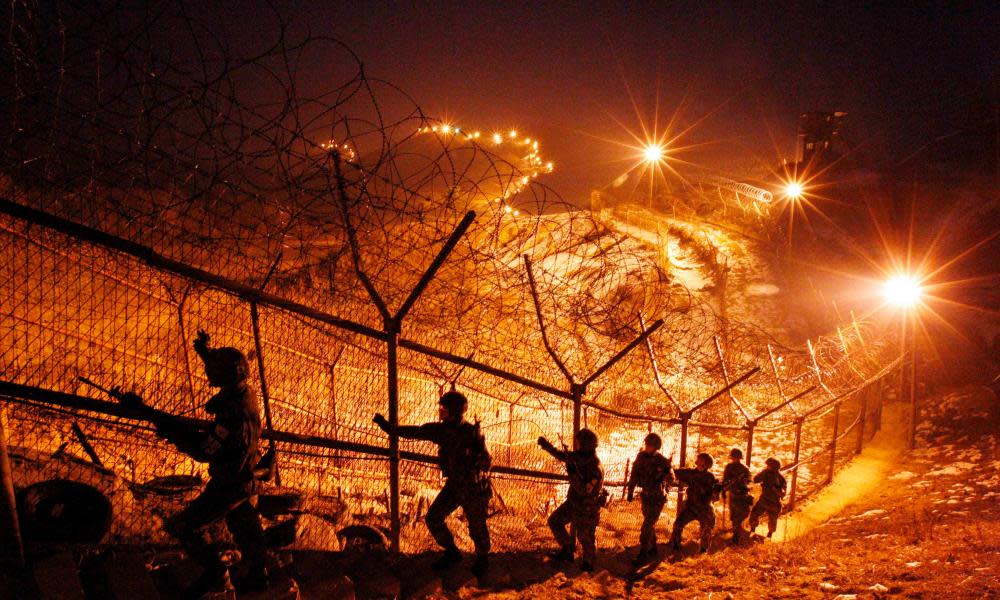Fewer barbs across Korean border as South scales back fence

South Korea appears likely to scale back its barbed wire fencing along the border with North Korea, one of the most militarised frontiers in the world.
The military will inspect some 300km (186 miles) of barbed wire along the demilitarised zone, according to an unnamed military official quoted by Yonhap news. The barrier has been a potent symbol of division since the end of the 1950-53 Korean war. Now, more than half of the fencing in coastal and riverside areas might be removed.
Ties between the two neighbours have improved markedly since the beginning of 2018. Leaders from the two Koreas have met twice since April, and the South Korean president, Moon Jae-in, will travel to Pyongyang by the end of September for a third summit with Kim Jong-un.
“At this point in time we think that some 57% of the fences can possibly be removed,” an unnamed defence ministry official said according to a Yonhap report. “We will take action this year as to the sections that the military can eliminate on its own, while we plan to take care of other fences in stages.”
The removal is part of a wider military reorganisation in the South, which aims to reduce the size of the force while increasing defences. South Korea practises universal conscription for men.
The barbed wire fences are a potent reminder for residents near the border but they also complain the barriers have created daily inconveniences. The fences have also prevented development of some coastal areas for tourism.
Other sections have been replaced by electronic monitoring equipment after local residents complained the barrier were an eyesore. As sections have been replaced and upgraded, framed pieces of barbed wire have become a popular keepsake for tourists and are sold online for about $20 (£15).
While for most Koreans the threat from North Korea is easy to forget, near the DMZ large swaths of land are still controlled by the military and civilian traffic is restricted.

 Yahoo News
Yahoo News 
